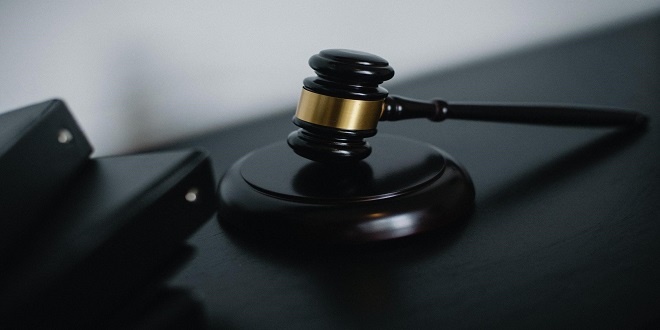What Miami Court Reporting Must Do and Not Do

Court reporters are an essential pillar of our justice system. They report what goes on in the courtroom, helping the justice system be transparent and accountable. Court reporters have a few things they can do and others to avoid when reporting the court’s proceedings professionally. Miami Court Reporting shares a few tips to help court reporters excel at their reporting.
The Dos of Court Reporting
Besides the apparent requirement for court reporters to be fair and accurate, they must do a few things to excel at their profession. These acts include:
- Travel light: The bailiff or other police officers are likely to search you before entering a courtroom or court building. It is best to travel light to make this process straightforward. It is best to only bring the essential items for your job.
- Speak to the usher: You may speak to the usher as you enter the courtroom. The usher can give you crucial information for your job. For example, they can direct you to the courtroom, share the case’s charge sheet, and inform you of any reporting restrictions for the specific case.
- Put your devices on silent: Putting your phone and tablet on silent is vital. It ensures your gadgets won’t make noise during court proceedings. This step is necessary to avoid contravening court rules, distracting the case’s parties, and irritating the judge.
- Get the court list: This list will give you essential details of those appearing in the courtroom. The information can include the names and addresses of those involved in the proceedings. Use this list to refer to the relevant parties accurately in your reports.
- Get a peek at the charge sheet: Having a look at this document is essential for your work. You’ll get various vital information for your reports. For example, court Miami Court Reporting professionals will know the correct charge against the accused. Getting the details right ensures that your account is fair and accurate.
- Get a copy of court orders: It is best to get copies of the court’s orders. They may include rulings to postpone or anonymity of the parties if it involves a minor. This information is crucial to readers to get a proper sense of what happens in the courtroom and keep up with the proceedings.
- Report the defendant’s plea: The defendant’s plea is a crucial element of the court’s proceedings. Ensure you capture it in your report. Including it in your work ensures that the readers will know vital components of the proceedings and follow the events from an informed position.
- Attribute the words to the right speaker: Attribute each parties’ utterances to them. This step is crucial to ensure readers of your report will follow the proceedings. They won’t struggle to know who is speaking or confuse the speakers.
- Have certification: Get accreditation from a state-certified court reporting program. You may need to pass Florida’s examination or the NCRA’s (National Court Reporting Association) Registered Professional Reporter exam. You may also need a license to report court proceedings. Improving your education qualifications and getting additional accreditations for higher speed examinations and real-time reporting can also help your career.
- Be fast and accurate: People may speak fast, and proceedings can change quickly. You’ll be in the best position to capture everything if you can type fast. It is best to record over 225 words a minute and have an accuracy of at least 97.5%. These qualifications can help you excel at Miami Court Reporting. Your reports will reflect the most significant parts of the court’s proceedings.
The Don’ts of Court Reporting
Miami Court Reporting professionals should avoid these issues to avoid legal troubles and remain professional.
- Don’t get the charge wrong: Be careful to report the correct charge. It is best to pay attention, as it is easy to mix up some accusations, such as theft and robbery. Documenting the wrong one(s) can have severe consequences. People may trust your reports less if you report the wrong charge, affecting your career.
- Please don’t take pictures: It may seem obvious that one shouldn’t take photos of proceedings, but it is still worth mentioning. You should only photograph the events if you have express permission from the court. If you take pictures without consent, you may land into serious trouble, such as having charges filed against you.
- Don’t disrespect the proceedings: Be professional throughout the court sessions. Don’t laugh, chat, or tut during the proceedings. Drawing the court’s attention for the wrong reasons can have you thrown out or fined for contempt of court.
- Don’t let legal terms throw you off your game: You’ll encounter various legal terminologies throughout the court’s proceedings. You may be familiar with some of them. Don’t let the ones that you don’t know throw you off your game. Remembering your aim to tell a story of the court’s proceedings can help you stay on track. You may write an overview of the proceedings and refine them later if they don’t involve direct speech instances.
- Don’t contravene reporting rules: Be careful about what you report. Publishing or broadcasting materials that pose a risk of prejudice to active proceedings makes you guilty of contempt, a criminal offense. You’ll be guilty of contempt if your reporting goes against court reporting rules. For example, follow the regulations to protect minors’ identity. Be careful to avoid defamation if you identify someone.
- Don’t identify or speak to jurors: Stick to the proceedings in the courtroom. If you run into a juror in your activities, avoid talking to them about the case. Add any background material to your report after the trial and only report the proof that the jury has heard.
Miami Court Reporting professionals should follow the stringent rules over what they can and cannot do. This requirement is vital to comply with the law, be professional, and have a reliable and fair report. Contravening the court reporting rules can have severe consequences, such as harm your career and lead to legal punishment. Follow these dos and avoid the don’ts to have reliable and fair reports.

